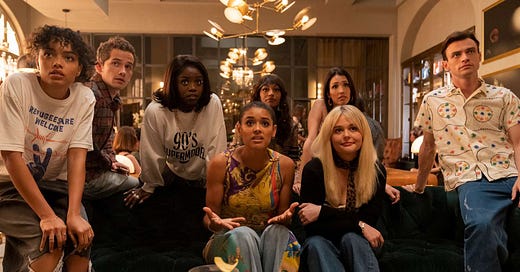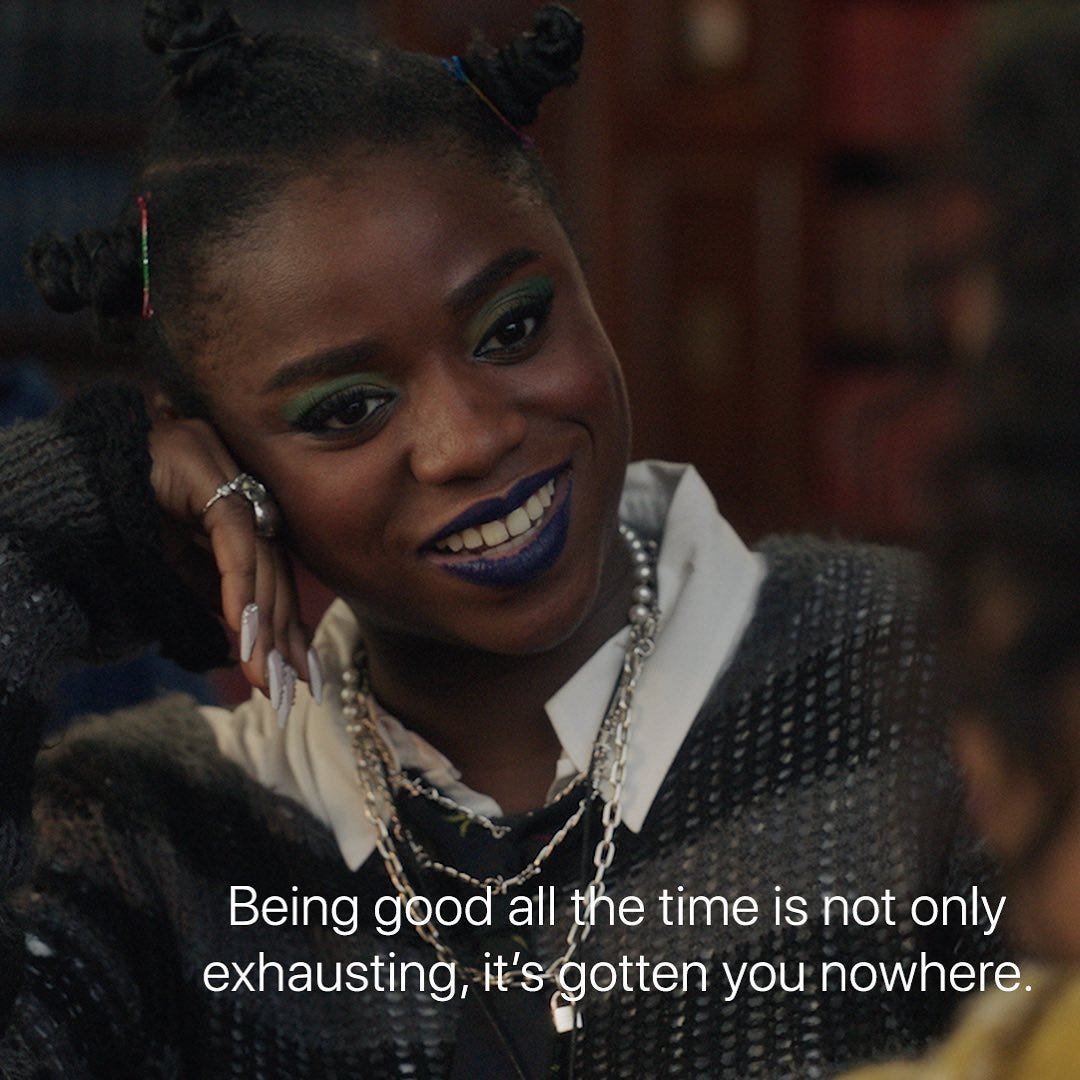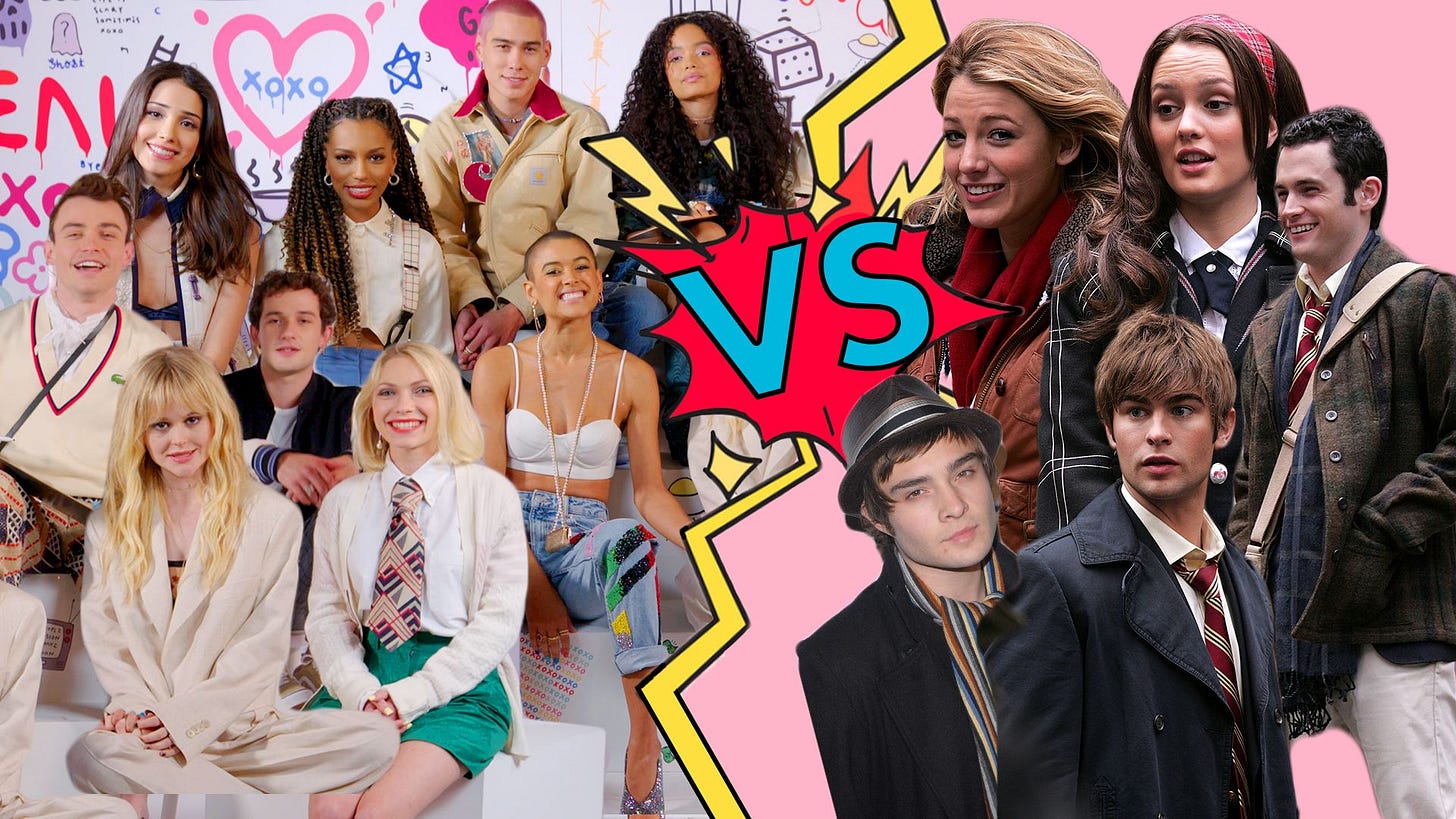"Breaking the Fourth Wall: How the Gossip Girl Reboot Lost Its Connection with Audiences"
The tea wasn't hot enough to sustain the attention.
In the era of reboots and remakes, Max's "Gossip Girl Reboot" arrived with great anticipation, promising to captivate a new generation of viewers while paying homage to its predecessor.
However, as the series struggled to gain traction and eventually fizzled out after just two seasons, several factors contributed to its untimely demise.
On the bright side, the actors got great exposure for their personal brands. Chanel and Vogue can't get enough of Whitney Peak!
The Millennial Perspective and the Gen Z Audience:
One of the primary reasons the "Gossip Girl Reboot" failed to connect with its intended Gen Z audience was the disconnect between the show's writers and their target demographic.
The scriptwriters, mostly Millennials themselves, struggled to capture the unique experiences, concerns, and values of the younger generation accurately.
While Gen Z viewers were seeking authenticity and relatability, they were instead presented with storylines and dialogue that felt foreign and out of touch.
By failing to tap into the Gen Z zeitgeist, the "Gossip Girl Reboot" missed an opportunity to create a cultural touchstone that would resonate deeply with this audience.
To bridge this gap, the series should have enlisted more Gen Z writers who could offer genuine insights into the challenges and aspirations of their peers.
Performative Nature of Social Issues:
The original "Gossip Girl" series garnered attention for its exploration of social issues within the context of a privileged Upper East Side setting.
However, the "Gossip Girl Reboot" approached these themes in a performative manner, lacking the depth and nuance required to engage the Gen Z audience.
Instead of authentic storytelling, the series often resorted to shallow and superficial representations of social issues, which only served to alienate its viewers.
The Gossip Girl Reboot really had strong themes; Social Media, Cyber bullying, Sexual orientation, Identity crisis that would have had a great culture impact if the writers dug deep into the issues.
To truly resonate with Gen Z, the "Gossip Girl Reboot" needed to address social issues in a way that felt genuine and reflective of the complexities of the modern world.
By providing thoughtful and meaningful commentary, the show could have fostered a dialogue that resonated deeply with its audience, rather than treating these topics as mere plot devices.
Weakness of Instagram-Focused Storytelling:
One of the defining aspects of the "Gossip Girl Reboot" was its heavy reliance on Instagram and social media.
While this may have seemed like a clever way to update the series for the digital age, it ultimately proved to be a weakness. The focus on Instagram as the primary storytelling medium detracted from the overall quality of the script, leaving viewers longing for more substantial narratives.
Rather than prioritizing Instagram's aesthetics and the fleeting nature of social media fame, the "Gossip Girl Reboot" should have prioritized engaging storytelling.
By delving deeper into character development, exploring interpersonal relationships, and building a more cohesive plot, the series could have transcended its Instagram-centric premise and offered a more compelling viewing experience.
Writing for the Original Millennial Audience:
Perhaps one of the missed opportunities of the "Gossip Girl Reboot" was not capitalizing on the nostalgia and existing fanbase of the original series.
The showrunners could have written with the intention of appealing to the Millennial viewers who had grown up watching the original "Gossip Girl."
By acknowledging and incorporating the shared experiences and cultural references of this demographic, the reboot could have gained a strong and loyal following right from the start.
While the Gen Z audience represents an essential market for any reboot, focusing on the original Millennial fanbase would have provided a more solid foundation for the "Gossip Girl Reboot" to thrive.
By crafting storylines that acknowledged the evolution and maturation of the millennial characters, the show could have effectively bridged the gap between generations.
This approach would have provided an opportunity for cross-generational conversations and added depth to the narrative, appealing to both the nostalgic fans and the younger audience.
The "Gossip Girl Reboot" fell short of expectations, unable to sustain the intrigue and captivate viewers beyond its second season.








